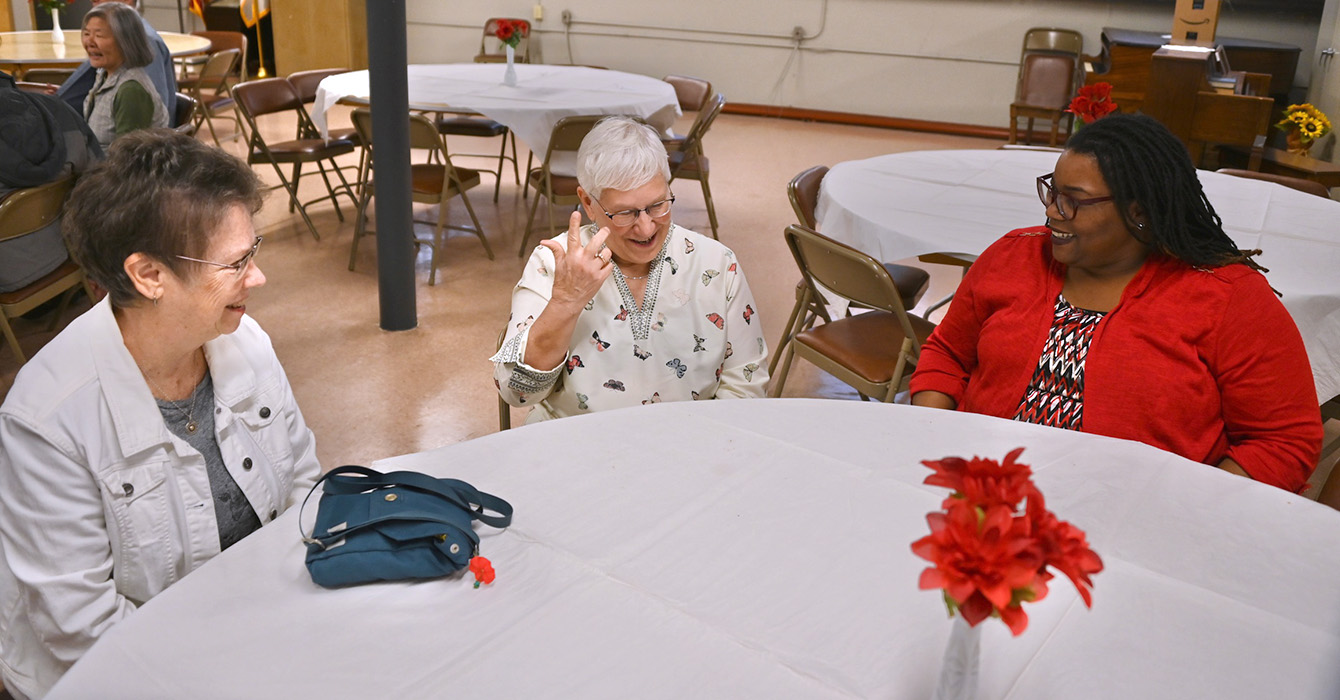In the past several months, I have had close to a dozen current or recent seminarians reach out to me asking for counsel on what to do with their desire to write.
Engaging in the craft of creative writing is where they feel most alive and the means by which they feel most passionate about witnessing to “the things about which [they] have been instructed” (Luke 1:4 NRSV).
But these men and women seek counsel on discerning how writing can be ministry and where they might turn for support and encouragement in understanding how faith and writing intersect. They share earnestly their hunger for Christian mentors who can affirm their felt callings and help them cultivate what such a ministry could look like.
I know of such hunger.
I have been writing since I could pick up a crayon. My love of words began with poetry -- Mother Goose nursery rhymes and a million different versions of “Roses are red, violets are blue.” Eventually, I tried my own hand at it and fell in love with the ability to play with words.
Naturally, as I’ve grown older, I have come to appreciate that writing is not just about wordplay. It is also about power and beauty, truth telling and possibility, and hope and activism.
Questions to consider
Questions to consider:
- Enuma Okoro describes writing as her “discerning shawl,” the way she comes to understand the work of the Spirit. Who or what functions in that way for you?
- Okoro identifies several practices -- silence, solitude, prayer and reading -- that are essential to her vocation of writing. What practices do you engage in that are vital to the living out of your sense of calling?
- What books have you read, what songs have you heard and what experiences have you shared that have given you permission to live into your calling? How have they shaped your imagination and challenged your assumptions?
- In the spirit of creative writing, write a letter to an imagined mentee about what you have learned from your vocational journey. What would you tell a person 15 years younger who has expressed a calling similar to yours?
Still, it has taken me decades to discern my calling as a writer, to accept this call as valid and to slowly navigate with the help of other writers, teachers and priests how my own particular writing ministry will look.
Such discerning is a work in progress. But an important part of vocational discernment is listening to how the community of faith responds to your perceived gifts, and a key moment for me occurred when people began to respond to my writing in ways that affirmed a sense of call.
Because I understand writing as a significant part of my call to Christian discipleship, I have also come to understand that other necessary habits must coexist with the discipline of writing to help me best live out this call.
So to the seminarians who email me with their concerns about how to cultivate a faithful writing practice, I share only what I have learned through my own experience.
I have learned how essential it is to welcome, appreciate and make space for silence and solitude. The first task is listening -- cultivating attentiveness to life in general, both locally and beyond. Every single thing around you and in the midst of your days can help you be a better writer. It is as poet Elizabeth Barrett Browning penned: “Earth’s crammed with heaven,/ And every common bush afire with God,/ But only he who sees, takes off his shoes; / The rest sit round it and pluck blackberries.”
I have also learned the importance of prayer. Wordsmithing is in itself a form of centering of breath, mind and prayer. Yet I speak particularly of the asking, seeking, knocking kind of prayer that beseeches God to reveal God’s self and God’s purposes for you as God’s child and for you as a writer and as one more fellow pilgrim in a broken community that groans for redemption.
I suspect it would be difficult for me to take writing as ministry seriously if I were not also an avid reader. The two tasks go hand in hand.
Beyond intellectual growth, reading teaches me that any physical space has the potential to become holy, a sanctuary where my thoughts and emotions can alight one by one like candles of blessings commemorating the dead. Reading draws me uniquely into the community of saints both present and passed on. It helps form me in faithful ways of engaging space and being in relationship.
Chinua Achebe’s “Things Fall Apart,” for example, affirmed anew the spiritual and communal truth that I am part of a bigger narrative than what I see. Anne Morrow Lindbergh’s “Gift from the Sea” taught me something significant and long-lasting about being female, creative and made in God’s image in these very ways. And John Leax’s vocational memoir “Grace Is Where I Live” helped me ease into the reality that it was OK to love both God and writing, and to feel called to writing as vocation. The book brought me into community with other Christians who had similar struggles.
Making a living as a writer is choosing to struggle with the tension of being called, having that call affirmed as ministry and discerning the particulars of that ministry. I have found it an ongoing challenge to live into a vocation as a writer, someone who culls words for the sake of faithful witness and imagined creativity and not for research or academic pursuits.
But I rely on narrative for spiritual nourishment. Returning words to God has always been my primary impulse of navigating my way through the world. Writing is the discerning shawl with which I wrap things whenever I sense the soft or strong winds of the Holy Spirit. It is one of my daily attempts to live and work faithfully with the gifts God has given me for the sake of the kingdom. I write because I believe writing is essential to my unique proclamation of God’s goodness.
Integrating my love of God and of words has been a somewhat solitary endeavor, a spiritual, intellectual and creative journey where I have found myself elated at the occasional fellow pilgrims I encounter with similar longings and hungers. I understand the space from which these seminarians who seek my counsel speak.
During my own theological training, I too wish I had been encouraged more to think of the disciplines of reading and writing as a response to God’s call and as a sort of spiritual practice inviting me to delve further and struggle creatively in God’s presence.
I wish I had encountered more mentors who had the time and space and concern to say to me, as someone who imagined writing as Christian vocation, “Take the leap of faith and trust in your gift to proclaim God’s word in new ways.” I hope I can grow into the sort of mentor who recognizes the writing gift and call in others and boldly and daringly says to them, “Write for the love and power of words. Write for the love of God.”













